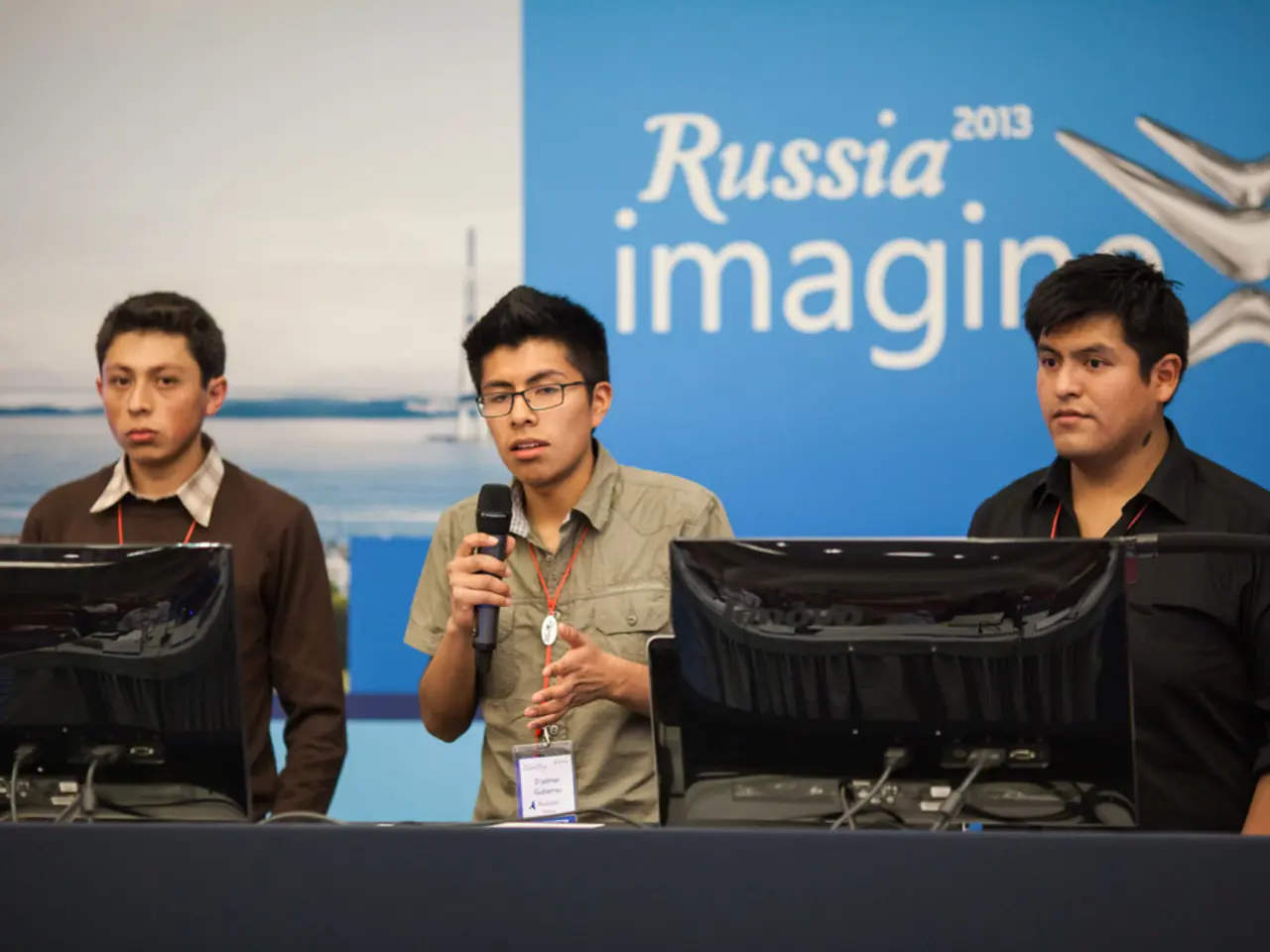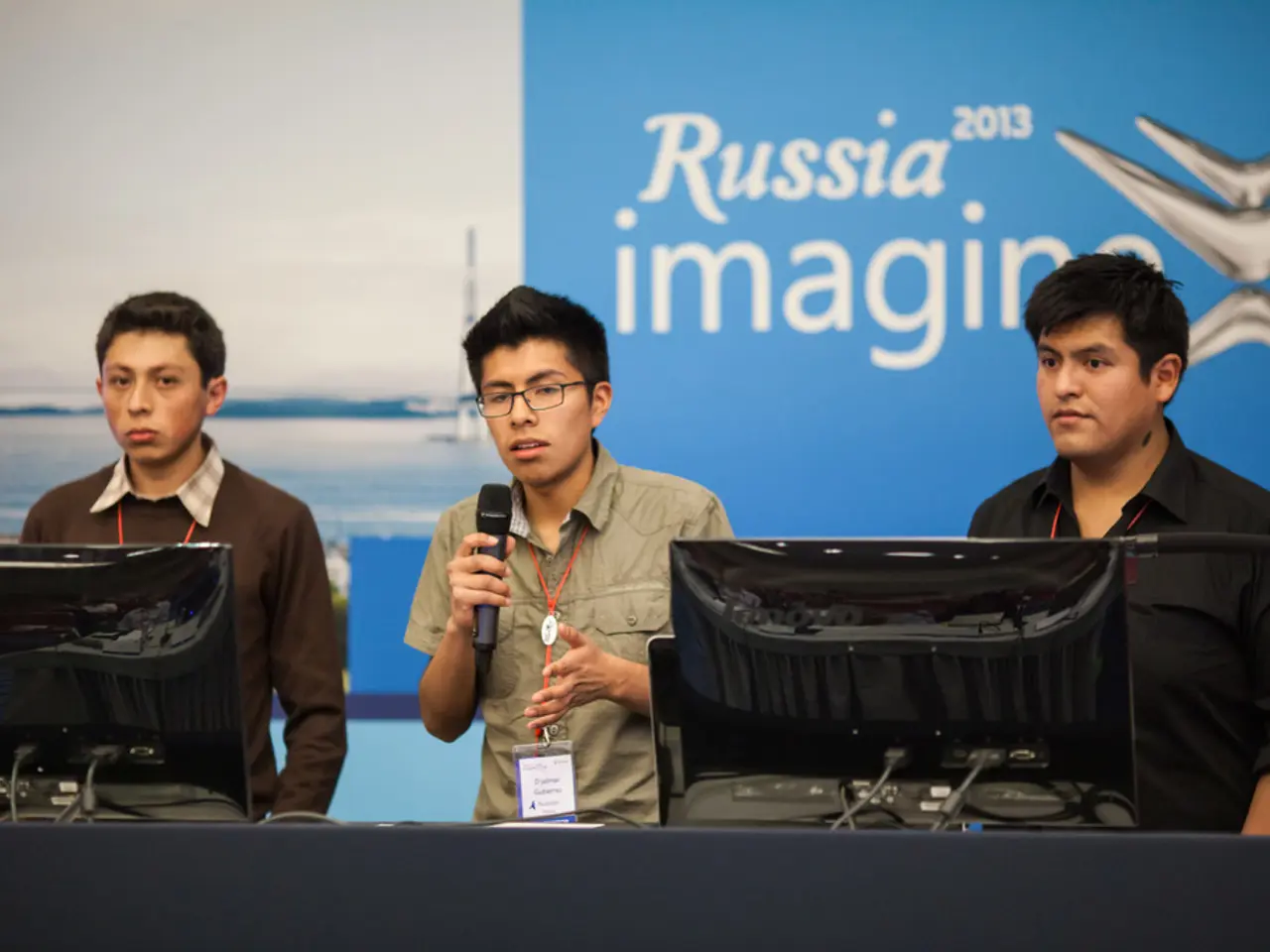Kremlin reportedly shifts strategic outlook via state television broadcast at 13:30
In a notable change from his usual hardline stance, Dmitry Kiselyov, a prominent Russian state TV propagandist, has adopted a tone of frustration and disconnection from on-the-ground realities. This shift comes amidst the ongoing conflict in Ukraine and stalled diplomatic talks, potentially signalling cracks in the Kremlin's propaganda and complicating Russia's narrative management.
Kiselyov, known for his aggressive and conspiratorial rhetoric, has historically supported Putin’s narratives and portrayed Russia as under siege from hostile Western forces. However, recent developments have seen a change in his tone. For instance, he has condemned actions like the arrests of Sputnik executives in Azerbaijan as deliberate provocations intended to worsen Russia’s foreign relations.
This shift in propaganda tone has several implications. Internally, it may reflect cracks in the Kremlin’s propaganda, potentially affecting domestic support for the war. Propaganda serves to maintain public backing for the conflict, and if key propagandists like Kiselyov express discontent or disconnect, it may signal challenges in sustaining the official narrative.
Externally, the stalled talks and Russia’s increasing isolation — illustrated by strained foreign relations including with Kazakhstan and Azerbaijan — exacerbate the Kremlin’s difficulties in controlling the narrative both domestically and abroad.
Moreover, the unusual tone may imply a subtle recognition that the official story is facing credibility issues. Putin and his propagandists have sought to blame external actors for the war, attempting to shift responsibility away from Russia’s own actions. However, Kiselyov’s divergence may suggest a recognition of the challenges in maintaining the narrative.
Meanwhile, the Ukrainian forces have made significant progress against the Russians. The Ukrainian military claims to have eliminated thousands of Russian soldiers and equipment, with claims of killing 4,521 Russian soldiers in June alone. Simultaneously, Russia's revenue from energy exports has declined by almost 17 percent, and military spending for the war in Ukraine is sharply increasing.
In related news, Latvia is delivering military equipment to Ukraine to support its fight against Russian aggression, and the US Department of Defense continues to offer President Trump robust options for military support to Ukraine. Ukrainian President Volodymyr Zelenskyy is also continuing negotiations with the USA on US aid to Ukraine, focusing on defense support, including air defense.
The EU foreign policy chief Kaja Kallas has demanded that China end the support of Russian war in Ukraine by Chinese companies, posing a serious threat to European security. Meanwhile, the Pope has assured his closeness to the Ukrainian people during a meeting at the Vatican with members of the Synod of Bishops of the Ukrainian Greek Catholic Church.
Former Secretary of State Mike Pompeo has warned that allowing Russia to win the war in Ukraine would be a catastrophe of unprecedented proportions for the American people and the world's security. As the conflict continues, the impact of these shifts in propaganda and international support remains to be seen.
In the realm of domestic policies, this shift in Kiselyov's tone might suggest a strain on Russia's employment policy, particularly within the media sector, as propagandists grapple with maintaining the official narrative. Externally, this change could also impact Russia's community policy, as allies like Kazakhstan and Azerbaijan might reconsider their relations due to strained foreign relations.
The EU's foreign policy chief, Kaja Kallas, has articulated a strong stance against China's potential involvement in supporting Russia's war-and-conflicts in Ukraine, raising concerns about European security. Simultaneously, the ongoing war has sparked increased political debates on the credibility of Russia's narratives, both domestically and internationally, possibly leading to revisions in their employment and community policies.








